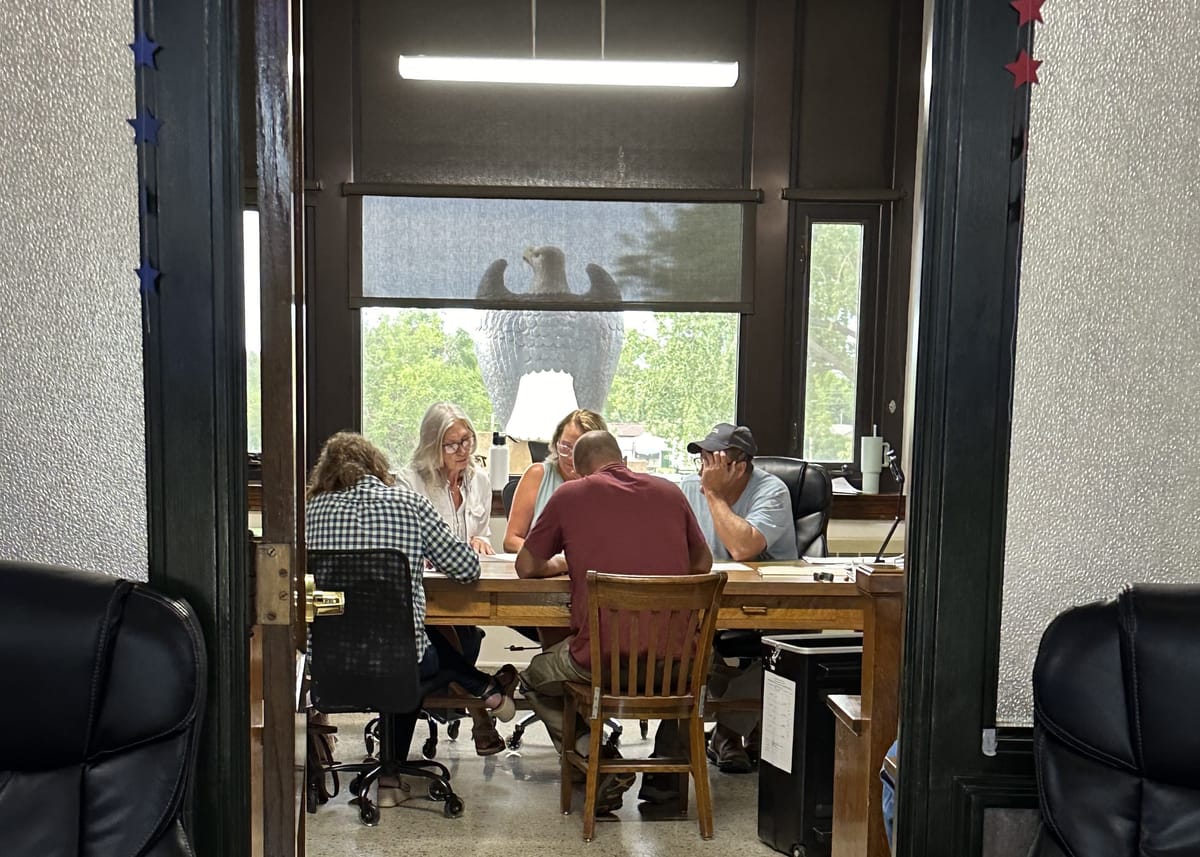
Stu Whitney/South Dakota News Watch
South Dakota’s most populous county, Minnehaha, was in the spotlight this week after its top election official ordered the county’s post-election audit to consist of all 2024 primary ballots being counted by hand.
But the debate over counting votes by hand vs. machines found a more decisive venue 250 miles away in McPherson County, on the state’s northeast edge bordering North Dakota, with a population of about 2,300.
On June 13, citizen hand-counting boards were formed in the county seat of Leola, South Dakota, to conduct a post-election audit of 100% of the ballots from the June 4 primary, which had been tallied by machine tabulators on election day.
The auditing boards, mostly composed of residents who support hand counts and question the accuracy and security of voting machines, encountered problems.
The hand count in two of the county’s four precincts did not match election day tallies, and board members of those precincts ended the audits before the count was reconciled, according to county officials.
South Dakota Canvassing, an electoral activist group that supports eliminating machine voting and tabulators, declared victory on social media, posting the tally sheets and stating that the “hand count results were correct and the machine errors are not explainable.”
‘You’re going to see problems’
McPherson County State’s Attorney Austin Hoffman filed a request for declaratory judgment June 20 to have the ballots unsealed so the counts could be reconciled, though none of the county or legislative races were close enough to be impacted.
A state circuit court judge allowed the re-audit to occur June 25. Board members from the non-affected precincts were asked to handle the counting.
That re-audit established that human error during the hand counting accounted for the earlier discrepancies, and that machine counts from the primary election were correct, according to County Auditor Lindley Howard, who provided the tally sheets and other documentation to News Watch.
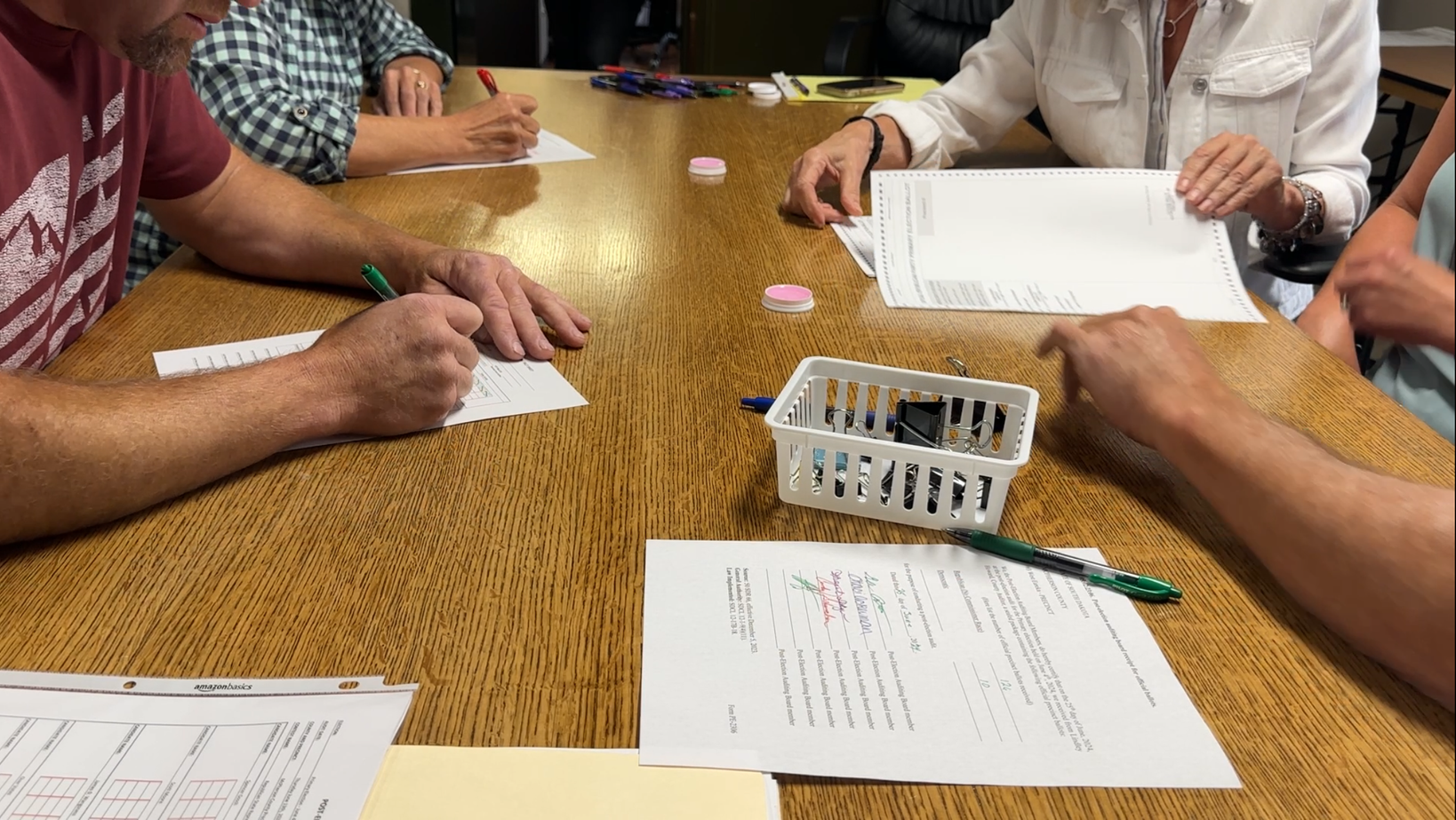
Howard also noted that the hand counting took about 15 minutes per race, which in a general election with 13 or 14 races could have caused reporting lags even in McPherson County, the state’s 54th largest county.
“If anything, it reinforced my opinion that hand counting is not the way to go on election night if you’re looking for speed and accuracy,” said Howard, who is also a member of the State Board of Elections. “If you take the minutes per race and human errors and extrapolate that out to bigger counties, I feel like you’re going to see some problems.”
Howard is not alone in that conclusion.
According to a News Watch survey of county auditors conducted in March, nearly 90% of those who responded (43 of 49) answered “no” to the question of whether hand counting is an “effective and efficient method of tabulating ballots.”
Mike Klipfel, a hand-court supporter who served on one of the audit boards that got the wrong tally, acknowledged in a phone interview with News Watch that human error occurred. But he said better tally sheets and procedures were available and that Howard was not prepared for the pre-election audit.
“The fact of the matter is that our county auditor failed at what she was supposed to do that day,” said Klipfel, who also serves as chairman of the McPherson County Republican Party.
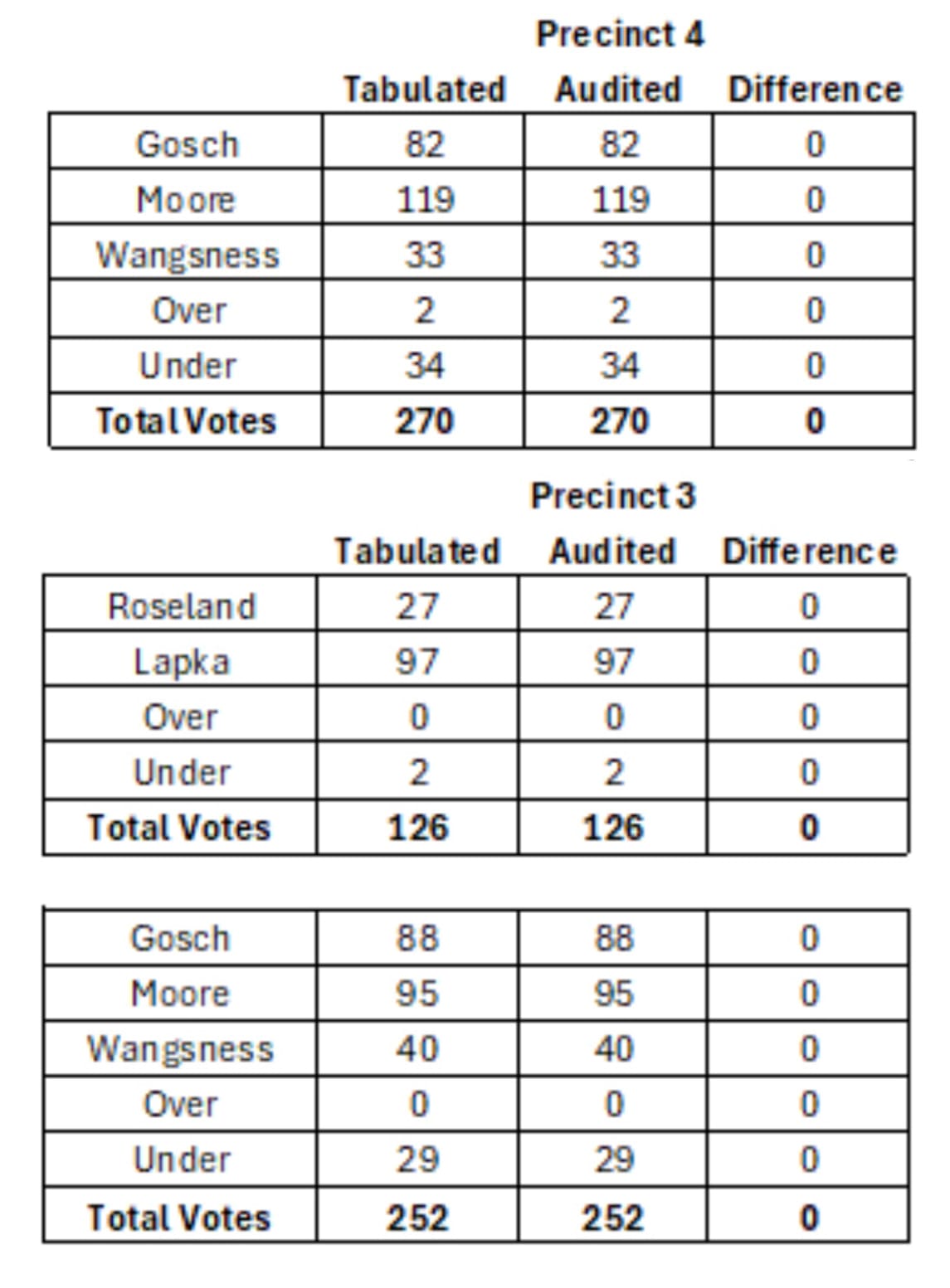
Hand counting is priority for reformists
McPherson County, which gave Republican Donald Trump 81% of the vote in 2020, has seen plenty of recent tussles between government officials and citizen activists as South Dakota grapples with election security and voting reforms.
Howard has clashed with South Dakota Canvassing supporters on legislative and legal issues, including drop boxes, absentee voting, voter-roll records and machine counting of ballots.
“Basically (the activists) are saying, ‘I’m a Christian, so I believe in election integrity, and you don’t agree with me, so you are doing Satan’s work,’” she told News Watch in 2023. “I would say that causes a lot of stress.”
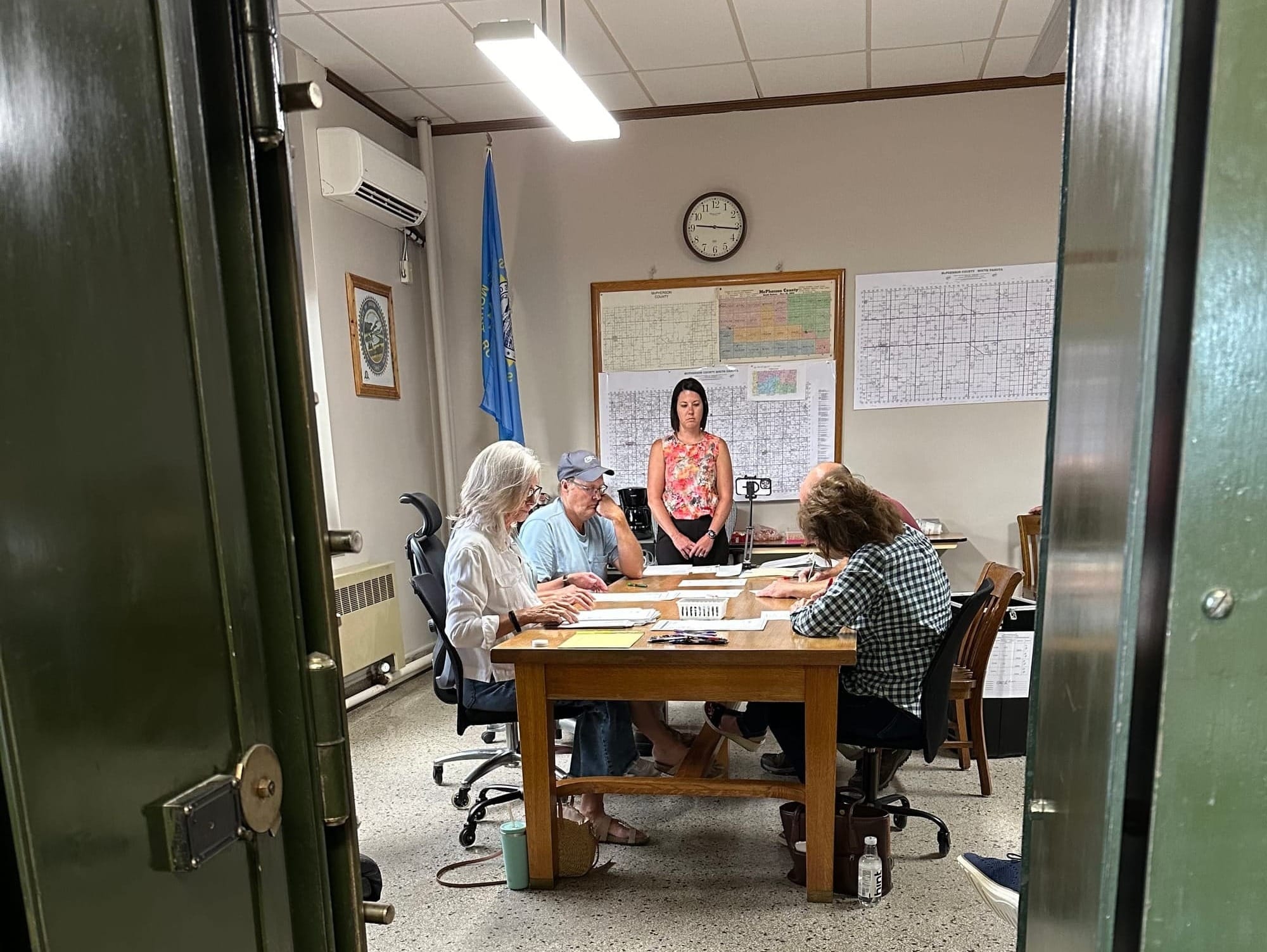
Hand counting has replaced the acquisition of cast-vote records as South Dakota Canvassing’s most pressing priority, with Minnehaha County Auditor Leah Anderson voicing support for lessening the state’s reliance on machine tabulators.
“If done properly with a good system in place and training ahead of time, (hand counting) can definitely be effective and efficient, especially in smaller counties,” Anderson told News Watch earlier this year.
Minnehaha County’s own June 25 hand count of more than 13,000 ballots took about 11 hours, Anderson told News Watch the day after the count. That was more than double what she had estimated. Of the 50 people counting ballots, she said some left early “due to health concerns and other commitments, like work.”
“Having so many forms to sign for each race and precinct, that definitely slowed down the process,” Anderson said. “Many workers wished they didn’t have to print and sign their name on every tally sheet and also have to sign every certificate.”
Results of the Minnehaha County post-election audit were sent to the secretary of state’s office and will be presented at the July 2 meeting of the county commission.
South Dakota law requires post-election audits
South Dakota passed a law in 2023 requiring post-election audits using hand counts of randomly selected voting precincts. The law calls for an audit of at least 5% of precincts, but McPherson County consists of just four precincts.
In February, the county’s board of commissioners voted in favor of a hand-counted post-election audit of all ballots cast in the June 4 primary election.
Needing 20 citizens to fill out four audit boards of five members each, Howard chose people who had expressed interest in hand counting as an alternative to machines.
One of those was Klipfel, a Leola farmer who supported a petition for a public vote to eliminate voting machines in McPherson County for 2024. The county commission voted in April to reject the petition based on legal advice that the measure’s wording could violate federal voting laws.
“Every election cycle, we believe, is the most important election in our life,” Klipfel said at a District 23 Republican forum in May. “This one is no different.”
‘It is not numerically possible’
The initial pre-election audit was held June 13 at the McPherson County Courthouse and took two-and-a-half hours. Two of the precincts came out fine. The other two had problems.
One of the discrepancies involved Precinct 3, where 127 Republican ballots were received. That should have amounted to 254 total votes for District 23 House, since people could vote for two candidates and undercounts would still be tallied.
The hand count ended up with 253 total votes.
“It is not numerically possible to have 253 total votes tallied, including under votes, with 127 ballots,” Hoffman, the state’s attorney, wrote in his June 20 request to unseal the ballots for another audit.
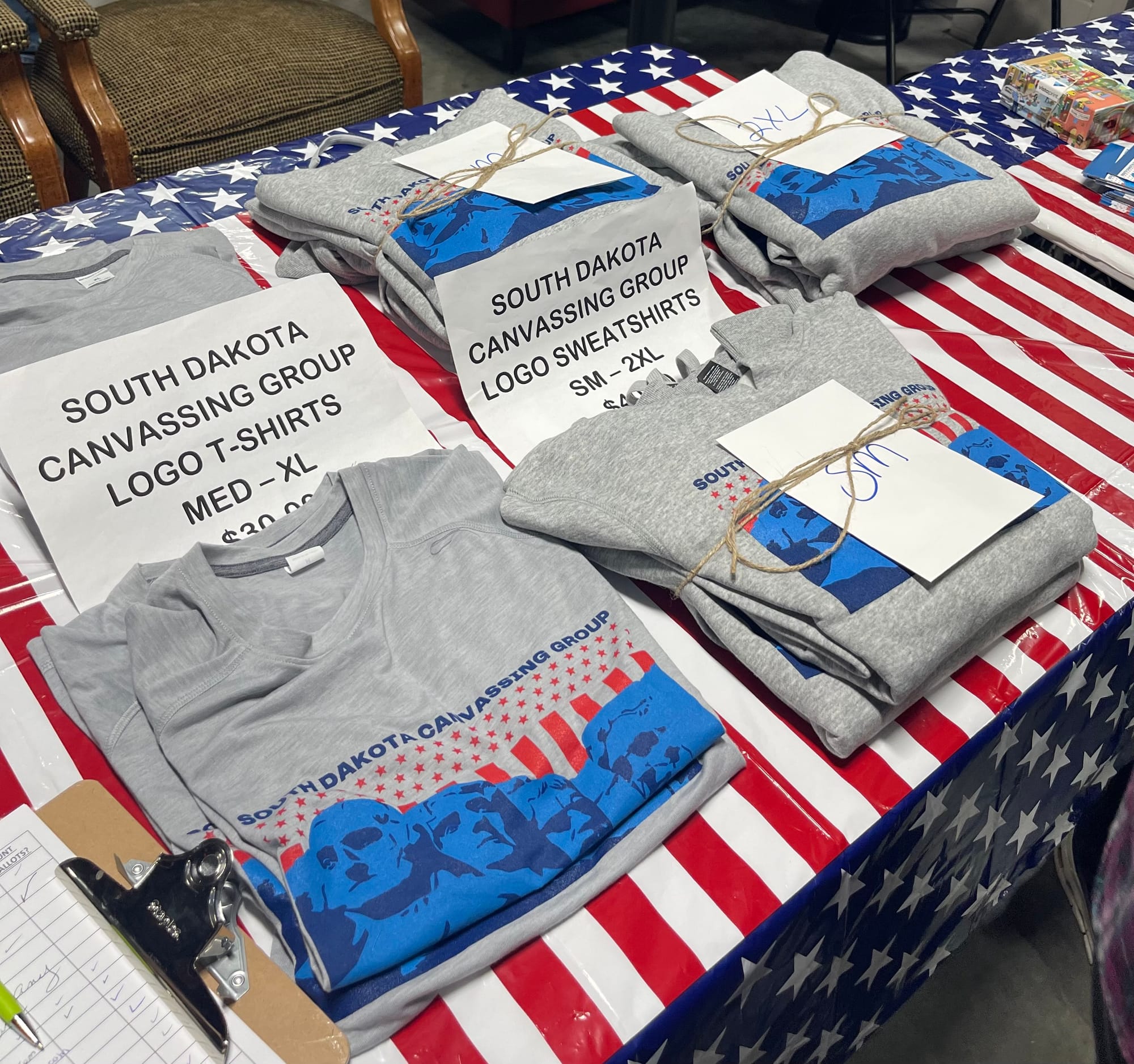
Hoffman made it clear in his filing that the results of the District 23 legislative races “will not be affected by the results of a post-election recount.”
Mark Lapka defeated Steven Roseland by 523 votes in the Senate race, while Spencer Gosch and Scott Moore prevailed by more than 1,000 votes in the House race over incumbent James Wangsness.
But since the discrepancies in the audit weren’t reconciled, county officials didn’t want to send inaccurate final voting tallies to the secretary of state’s office.
“If election integrity is what’s being asked for, ensuring the post-election audit is done correctly is part of that,” said Hoffman.
Howard, the auditor, told News Watch that Klipfel “was adamant that they weren’t going to recount. He said that they were right and the machines were wrong and he got up from the table. We were kind of at a loss as far as, ‘What do we do now?’ Because he was done.”
Klipfel disputes that account, saying that Howard suggested running the ballots back through the machine and that he questioned if that would violate state law.
“I told her that I wasn’t going to be responsible for doing something that was not legal, and that was the end of it,” he said.
McPherson County Commission race throws off count
In Precinct 4, there were 135 Republican ballots cast in the primary. The audit board tallied 262 votes in the District 23 House race. But the total should have been 270, with Hoffman again stating that a result of 262 was “not numerically possible” with 135 ballots.
Howard and Hoffman theorized that the board was likely thrown off by the fact that the McPherson County Commission race was only listed on four ballots. The board counted those ballots first and tallied the Senate ballots that also included the county race before setting those four ballots aside.
But they neglected to reincorporate those four ballots while counting the House race, making them eight votes short (two House votes per ballot). That explained why they came up with 262 rather than 270.
The same audit board “did re-count the Republican ballots to attempt to reconcile the tally numbers for the State Representative race,” Hoffman wrote in his filing. “However, it is believed that the four ballots were again not included in this re-count and the tally again came out to 262.”
‘True believers’ likely won’t be swayed
Serving on the Precinct 4 audit board was Jodi Waltman, secretary of the McPherson County Republicans, who had worked closely with South Dakota Canvassing and its advisor, Rick Weible, on the hand counting petition.
Following the audit, South Dakota Canvassing posted the hand tally on Facebook and the Telegram instant messaging service, adding that “the results prove the machine is NOT accurate and is in violation of (Election Assistance Commission) requirements. The allowable error rate is 1 in 500,000 ballot marks. This is clearly over that rate, which means the machines must be decertified and immediately and discontinued for us. DECERTIFY!”
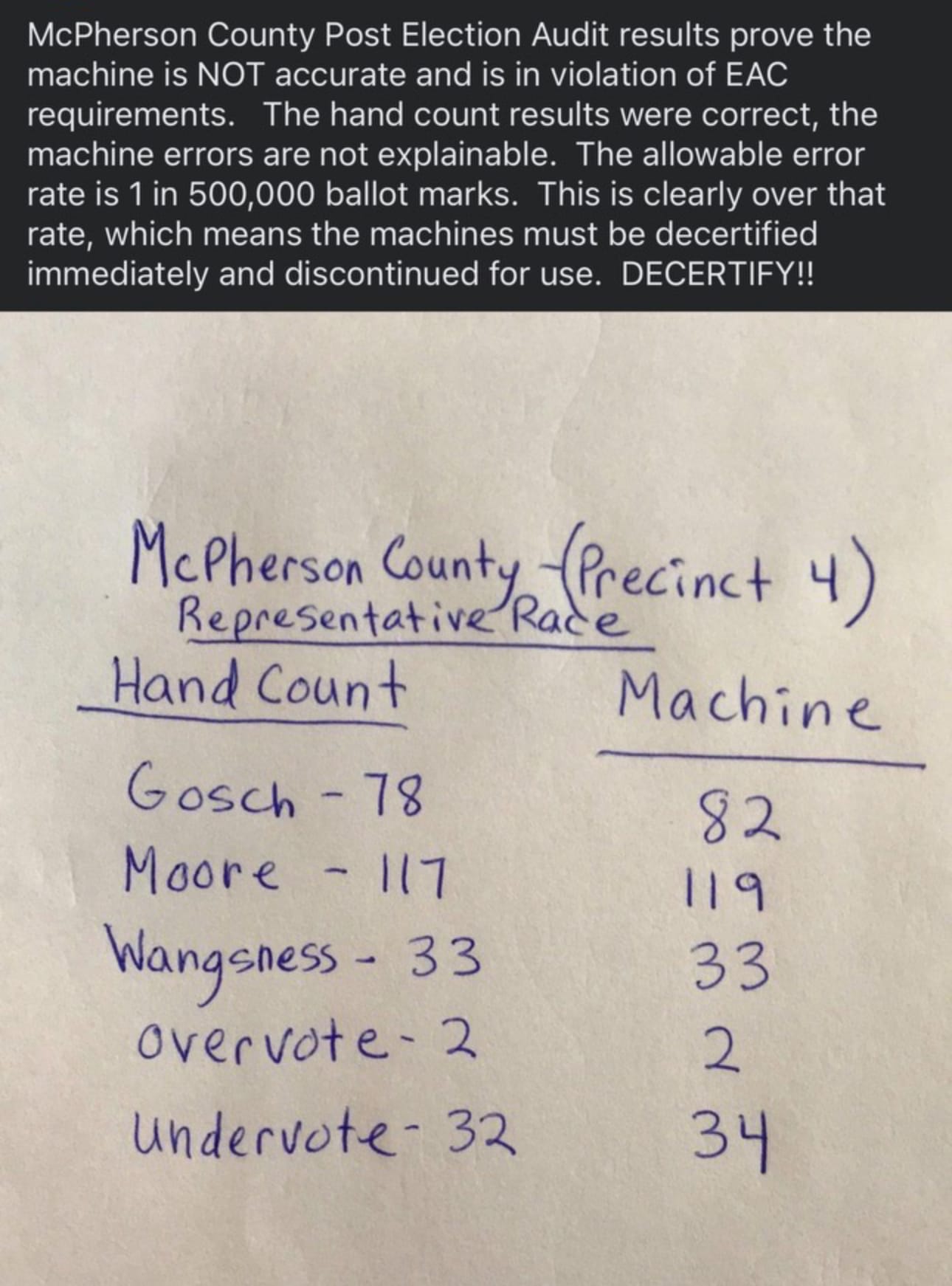
That post no longer appeared on Facebook by the time the re-audit was conducted June 25, confirming that the machine count from the June 4 primary election was correct. Jessica Pollema of South Dakota Canvassing responded to a message from News Watch but refused to comment for this story.
McPherson County officials cited human error for the discrepancies that occurred during the original post-election audit for Precincts 3 and 4.
“The eight-vote discrepancy in the original audit of Precinct 4 was human error from four ballots that were not included in the House race count when the board conducted the audit,” Howard said, confirming earlier theories of what occurred.
Tod Gohl, a Leola native who has been vocal at McPherson County Commission meetings and on social media about getting rid of voting machines, told News Watch that the audit results did not change his mind.
Gohl and other election reformists view South Dakota as a proving ground for claims that recent elections across the county were substantially impacted by hacking or fraud, allegations repeatedly rejected by courts of law as well as Democratic and Republican election leaders.
As for Howard, she said she’s glad that the audit results were resolved, but she’s trying to be realistic about who learned lessons in the process.
“For the people who are true believers, if you will, I don’t think it will make much of a difference,” she said. “But I’m hoping that people who are on the outer edges of the movement might see things like this and think twice.”
